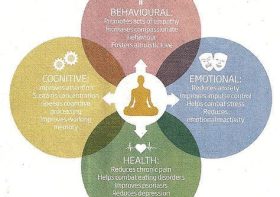Understanding Metabolism: How to Boost It for Weight Loss

Metabolism plays a vital role in weight management. It refers to the chemical processes through which our bodies convert food and drink into energy. Essentially, it is the rate at which we burn calories to carry out bodily functions, such as breathing, digestion, and even thinking. Faster metabolism ensures more efficient calorie burning and thus aids in weight loss. In this article, we will delve into understanding metabolism and explore effective ways to boost it for effective weight loss.
The Basics of Metabolism
Metabolism can be categorized into two main components: basal metabolic rate (BMR) and physical activity. BMR accounts for about 60-75% of the calories burned daily and represents the energy needed to sustain essential bodily functions at rest. Physical activity, on the other hand, includes planned exercise, daily activities like walking, and the energy expended during workouts. Understanding these components helps us comprehend how metabolism affects weight management.
Factors Affecting Metabolism
Several factors influence metabolism. Age, gender, and genetics are three primary determinants. Age plays a crucial role, as metabolism naturally slows down with age due to muscle loss and hormonal changes. Men generally have higher metabolic rates because they tend to have more muscle mass than women. Genetics, too, impact metabolism, as certain genes can influence the efficiency of calorie burning.
Boosting Metabolism for Weight Loss
1. Strength Training
Incorporating strength training exercises into your fitness routine is a great way to boost metabolism. When you engage in activities that build muscle mass, your body’s energy demands increase, even at rest. This is because muscle requires more calories to maintain than fat. By adding strength training exercises such as weightlifting or resistance training, you can increase your muscle mass and in turn, raise your metabolism.
2. High-Intensity Interval Training (HIIT)
HIIT workouts involve alternating between high-intensity exercises and short recovery periods. These intense bursts of activity can help increase your metabolic rate for hours after the workout. HIIT exercises can be tailored to your fitness level and preferences, including running, cycling, or bodyweight exercises. This type of training not only burns calories during the workout but also continues to do so long after you’ve finished.
3. Stay Active Throughout the Day
Physical activity is instrumental in boosting metabolism. While structured workouts are beneficial, simply staying active throughout the day can also make a difference. Small changes like taking the stairs instead of the elevator, walking or biking instead of driving short distances, and incorporating regular movement breaks at work can all contribute to increased activity levels and a higher metabolism.
4. Eat Protein in Every Meal
Consuming adequate protein is essential for maintaining and building muscle mass. Since muscle burns more calories than fat, increasing your protein intake can indirectly boost your metabolism. Protein also has a higher thermic effect than carbohydrates or fats, meaning it requires more energy to digest. Incorporate lean sources of protein such as chicken, fish, tofu, or beans into every meal for maximum benefits.
5. Stay Hydrated
Drinking enough water is vital for overall health, but it can also impact your metabolism. Research suggests that drinking water can temporarily boost metabolism by 24-30% for up to an hour and a half. Additionally, staying hydrated helps optimize bodily functions, including digestion and nutrient absorption, which contribute to a healthy metabolism.
6. Get Sufficient Sleep
A lack of sleep can disrupt hormonal balance in the body, leading to imbalances in appetite-regulating hormones. This often results in increased hunger and cravings, making it harder to maintain a healthy weight. Adequate sleep is crucial for maintaining a healthy metabolism and supporting overall well-being. Aim for 7-9 hours of quality sleep every night to optimize your metabolic function.
Conclusion
Understanding metabolism and its role in weight management is crucial for those looking to shed excess pounds. By incorporating various lifestyle changes and adopting healthy habits, it is possible to boost metabolism and enhance weight loss efforts. From strength training and HIIT workouts to maintaining an active lifestyle, incorporating protein-rich meals, staying hydrated, and getting enough sleep – these strategies can collectively help optimize metabolism and lead to successful weight loss.


